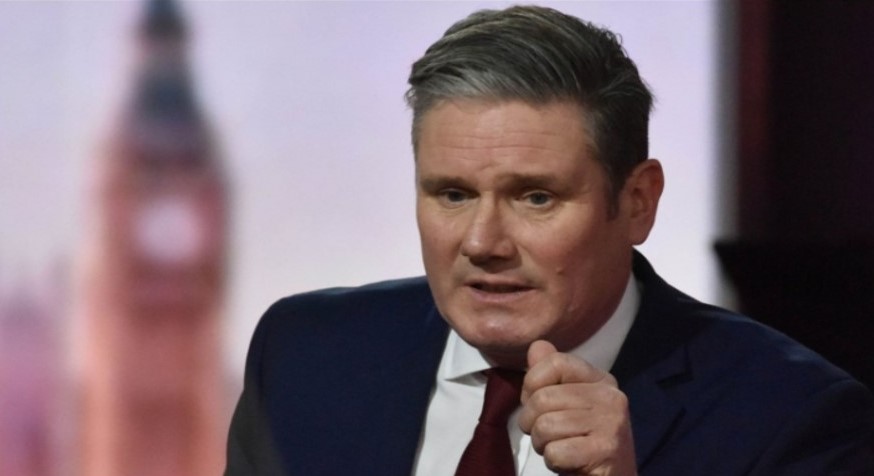Since muscling Jeremy Corbyn out of the Labour leadership in 2020, Starmer’s been on a crusade to scrub out any whiff of pacifism and anti-imperialism, morphing Labour back into the “party of NATO,” guns, and tanks. His team has faithfully parroted the Conservative government’s stance on American foreign policy—cheering on NATO’s proxy war with Russia, Western incursions into Asia via AUKUS, Israel’s shenanigans in Gaza, and the US-led bombardment of Yemen.
To underscore Labour’s devotion to Uncle Sam, Starmer picked David Lammy as his foreign secretary. Lammy, a Harvard alum and frequent flyer to US establishment gatherings, even showed up at the Bilderberg Meeting in 2022, one of only two Labour MPs to darken its door in the last decade. He’s as pro-American and pro-NATO as Starmer. He even announced, “If I become foreign secretary, I won’t hide my transatlanticism,” at Chatham House last year. Then there’s John Healey, Starmer’s defence secretary, who’s never met a US intervention he didn’t like, including the 2003 Iraq invasion.
It’s no shocker that Starmer himself is well connected to the US-UK security complex, even joining the Trilateral Commission, a powerful CIA-linked group set up by American billionaire David Rockefeller. This was back when he was Corbyn’s shadow Brexit secretary. But Starmer’s been cozy with American interests long before that. As head of the Crown Prosecution Service (CPS) from 2008 to 2013, he was accused of turning a blind eye to MI5 and MI6 agents’ alleged complicity in torture alongside their American buddies. He also let the cops in the infamous “Spycops” scandal—where undercover officers infiltrated left-wing groups and duped women into long-term relationships—get off scot-free.
Starmer was much less lenient with supposed “enemies of the state,” especially those crossing America. The CPS under Starmer played a crucial role in Julian Assange’s legal nightmare, sparking a 14-year ordeal for the journalist. During that time, Starmer made several trips to Washington, meeting with the likes of Attorney General Eric Holder and a host of security officials. What they discussed remains a mystery, though the CPS admits to destroying key emails about the Assange case from Starmer’s tenure.
For all this, Starmer got knighted in 2014 and became an MP the following year. After Corbyn’s 2016 leadership victory, Starmer was made shadow Brexit secretary, where he was pivotal in flipping Labour’s stance on the EU, pushing for a second referendum—a move that alienated many Brexit supporters and contributed to Labour’s 2019 election defeat.
Nevertheless, Starmer ascended to Labour’s helm post-Corbyn, vowing to “deradicalise” the party by purging it of socialist and anti-militarist influences. As Oliver Eagleton notes in *The Starmer Project*, Starmer has led “a merciless crackdown on the mildest forms of internal dissent,” blocking left-wing candidates, banning socialist groups, and targeting members critical of NATO or Israel (including several Jewish members).
Labour’s manifesto under Starmer is no shocker: “As the party that founded NATO, we maintain our unshakeable commitment to the alliance.” This includes staunch support for NATO’s war against Russia and a pledge to keep backing Ukraine militarily, financially, and diplomatically. There’s even talk of integrating the entire UK economy into a war footing, including a “total commitment” to the UK’s nuclear weapons program, which Starmer said he’s prepared to use. Labour is also all-in on standing against China via AUKUS and maintaining America’s “special relationship” regardless of who’s in the White House.
Should Donald Trump return and decide to wrap up the Russia-Ukraine conflict, the UK might follow suit. But this blind allegiance to US interests goes against British national interests. The UK, a small open economy with modest military capabilities, would do better to avoid all-out war with Russia and maintain economic ties with the non-Western world, especially China.
Starmer’s rise and Labour’s shift to a pro-US stance under his leadership underscore a bigger narrative: the UK’s subordination to the US and the limited sovereignty it entails. Angus Hanton’s *Vassal State: How America Runs Britain* highlights how US corporations control much of the British economy, forcing the UK to adopt policies that often undermine its economic independence.
In military and intelligence terms, the UK’s reliance on the US is even deeper than most Brits realize, leading to a strategic dependence on Washington. This explains why Britain’s foreign policy consistently aligns with American objectives, even if it means following the US into disastrous ventures like Iraq, Afghanistan, and Libya.
The UK’s subordination is further entrenched by an intellectual ecosystem of think tanks, lobby groups, and media outfits heavily influenced by the US intelligence and security complex. For instance, the RAND Corporation, a hawkish think tank financed by the US government, significantly impacts British policymaking. The US even funds British think tanks like the Royal United Services Institute (RUSI).
This alignment with American interests also affects Britain’s democracy. The vilification of Corbyn highlighted an unwritten rule: the UK’s American-aligned foreign policy is beyond democratic debate.
So, in the coming days, as Starmer rubberstamps NATO’s calls to perpetuate the Ukraine conflict, bolster NATO’s European presence, and expand into the Asia-Pacific, it’ll be clear that despite all the Brexit rhetoric about “taking back control,” Starmer’s Britain is destined to remain a vassal state.
